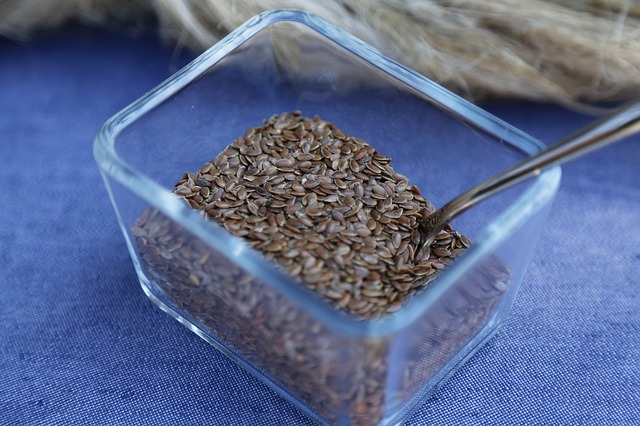Constipation is best treated by correcting the imbalance that caused it in the first place rather than by using medications. Ayurvedic medicine for constipation can help you with this. All disorders are treated holistically in the world’s oldest medical system.
Congestion is treated with Ayurveda by rebalancing Doshas (energy systems) in the body that have become imbalanced. The focus is on optimizing digestion and fixing body metabolism to ensure smooth bowel movements.
Constipation Remedies and Ayurvedic Treatments necessitate lifestyle adjustments to live a healthy and fulfilling life. This is an entirely natural and risk-free method of treating diseases and problems.

The use of herbal formulations to alleviate constipation is recommended by Ayurvedic medicine. These herbs have been utilized for thousands of years and are sourced from nature. Because of this, Ayurvedic constipation therapy is effective and long-lasting.
Related Post- Vajrasana Benefits- Does it work for Constipation?
What is Constipation?
Fewer bowel movements or difficulty in passing bowel is constipation. The stools become difficult to pass or stop moving altogether over an extended period is commonly known as constipation. The following are the most common symptoms of constipation, which are frequently experienced in combination.
Symptoms of Constipation
- Bowel movement straining
- Difficulty in passing stools
- A feeling of incomplete bowel movement
- The sense that you’re suffocated
- Stools may be dry, firm, or pellet-like.
Ayurvedic Medicine for Constipation
As per Ayurveda, constipation is caused by the cold and dry properties of Vata disrupting the colon’s regular functioning. To counteract the excess Vata, the cure offers warmth, oil, and moisture to the body. The following tactics specifically counteract the cold and dry features of Vata and can be helpful when regular bowel movements are reintroduced.
Related Post- Effective Yoga Poses for Acid Reflux
1. Plenty of Hot/ Warm Water and Herbal Tea
A minimum of 80 ounces of water or herbal tea should be consumed each day. Warm and hot fluids are better for balancing the frigid nature of Vata. It’s also crucial to drink most of these fluids at least 20 minutes before or after meals.
2. Increase the Number of Organic Oils
High-quality oils serve to lubricate the tissues so that a suitable amount of oil or fat remains in the stool. While most oils are usually beneficial, sesame oil, ghee oil, and olive oil are the most refined oils for Vata.
3. Eat Abundant Fruit
Fruit is hydrating, fibrous, and Vata-calming. Ripe bananas, peeled apples, soaked raisins, soaked prunes, and peaches are all excellent sources. To benefit from the fruit, consume it at least one hour before or after eating other things and chew it well.
4. A Glass of Fruit Juice– Ayurvedic Medicine for Constipation
Pineapple juice and prune juice are very good for clearing extra Vata out of the colon. Warming or diluting fruit juices with water is also acceptable.
Also Read- Effective Yoga Poses for Belly Fat
5. Soaked Flax Seeds or Milk with Ghee
Have a cup of hot milk with 1–2 tablespoons ghee or a spoonful of flaxseeds cooked for 2–3 minutes before bed. The tea and seeds should be cooled and sipped to allow at least one hour (ideally two to three) between your final meal of the day and this bedtime drink.

6. Vedic Herbs for Vata Relieving
All three Doshas are balanced by the traditional Ayurvedic formula Triphala, composed of three fruits. It has a particular affinity for the colon, which makes it particularly supportive of healthy elimination.
Either take 2 Triphala pills with a glass of warm water approximately half an hour before bed or if you prefer a powder, take 1/2–1 steep teaspoon of Triphala powder for a 10-minutes drink in freshly heated water. Cool and drink.
7. Other Ayurvedic Medicine for Constipation
- In addition to providing soluble and insoluble fiber, Psyllium husk also acts as a demulcent and bulking agent in the colon, promoting healthy and regular bowel movements.
- You can soak the husks in warm water or milk and drink plenty of water while doing so. Ayurvedic practitioners or your primary health care physician should be consulted before adding this herb to your regimen.
- Sukumara Ghrita is ghee advised for optimum gastrointestinal health. It is beneficial in the treatment of constipation.
- Dashamula is a conventional phrase composed of ten herbs’ roots. Improved digestion and simple feces elimination are only two of the many health benefits.
Also Read- Spot Jogging Benefits for Weight Loss
8. Yoga for Constipation
For a healthy physique, physical activity is essential. Avoid sitting still for long periods. Instead, exercise regularly and take a short stroll after a heavy meal to burn off some excess calories. For constipation, yoga can be beneficial.
Numerous Yogasanas can help persons who suffer from constipation. It relieves bloating and gas. It can also be used to rectify imbalances and facilitate the passage of feces through the digestive tract. Constipation-relieving Yogasanas include:
- Bhujangasana (Cobra pose)
- Trikonasana’s (Triangle pose)
- Viparita Karani (Upside down pose)
- Pavanamukthasana (Wind relieving pose)
- Shalabasana (Locust pose)
- Ardhamatsyendrasana (Half spinal twist pose)
9. Proper Sleep
Also Read- Do you feel tired all the time?
As a body regenerator, sleep is essential in the treatment of any sickness or condition. Six to eight hours of sleep are indicated to revitalize and increase the metabolic rate of the body.
The Last Line- Ayurvedic Medicine for Constipation
Ayurveda’s stance on constipation is explained here, along with some practical strategies for promoting regularity. However, if your constipation is very severe or prolonged, or if it occurs more than infrequently, you should check with your primary healthcare professional as soon as possible.